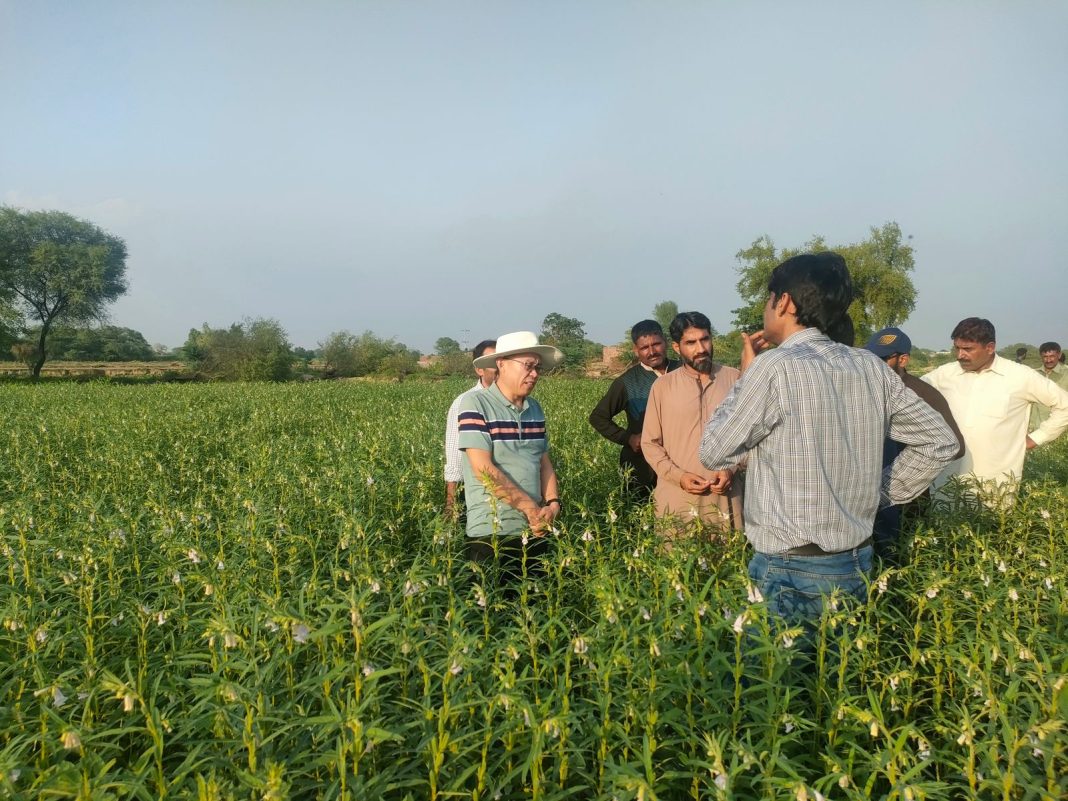ISLAMABAD: The first sesame cargo of 50 tons based on contract farming will be delivered to China this month.
The testing farm started early this year by China Machinery Engineering Corporation (CMEC) will boost innovative farming and agricultural cooperation between the two countries.
“The first cargo of 50 tons was all collected from our contract farming, it will reach China before 25th Dec”, Xi Jianlong, project manager of contract farming at CMEC Pakistan said.
He said, “We would like to expand sesame contract farming next season to 30000 acres in Pakistan and will export 10000 tons to China.
Our company has many contract-based farms in Sindh and Punjab including dry red chili and sorghum farms.”
“Our first project on contract farming was for dry red chili, our red chili farms are located in Multan, Khanewal, Lodhran, and Muzaffargarh. After sesame the 3rd project is contract farming of sorghum, its farms are located in Lahore, Okara, and Khanewal,” Xi added.
Xi Jianlong mentioned his company also plans to export red chili and sorghum to China. “We are the first Chinese company to execute contract farming in Pakistan benefiting the local farmers.
Introducing modern technology will improve Pakistan’s yearly yield and trading volume giving a boost to exports.”
Earlier in August the company signed an MOU to revolutionize sustainable food systems, bridging small farmers and end-to-end value chains for enhanced efficiency and food security.
Contract farming in Pakistan has several benefits for local farmers, such as providing smallholder farmers access to better inputs and technology, reducing market risks, improving income stability, and fostering agricultural modernization.
Contract farming in Pakistan has gained traction as a mechanism to link farmers with agribusinesses or companies, especially in sectors like cotton, fruits, vegetables, and dairy. This arrangement has been seen as a way to enhance agricultural productivity, improve quality standards, and provide market access to smallholder farmers. –INP





